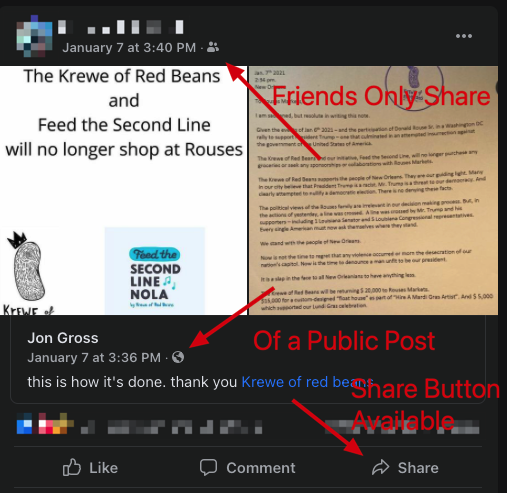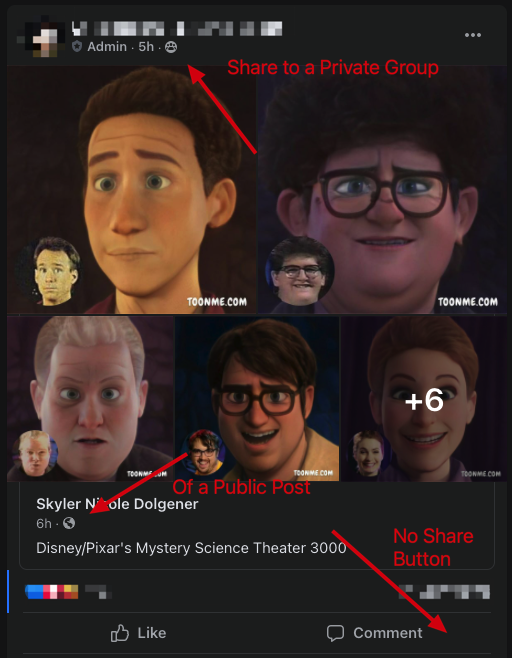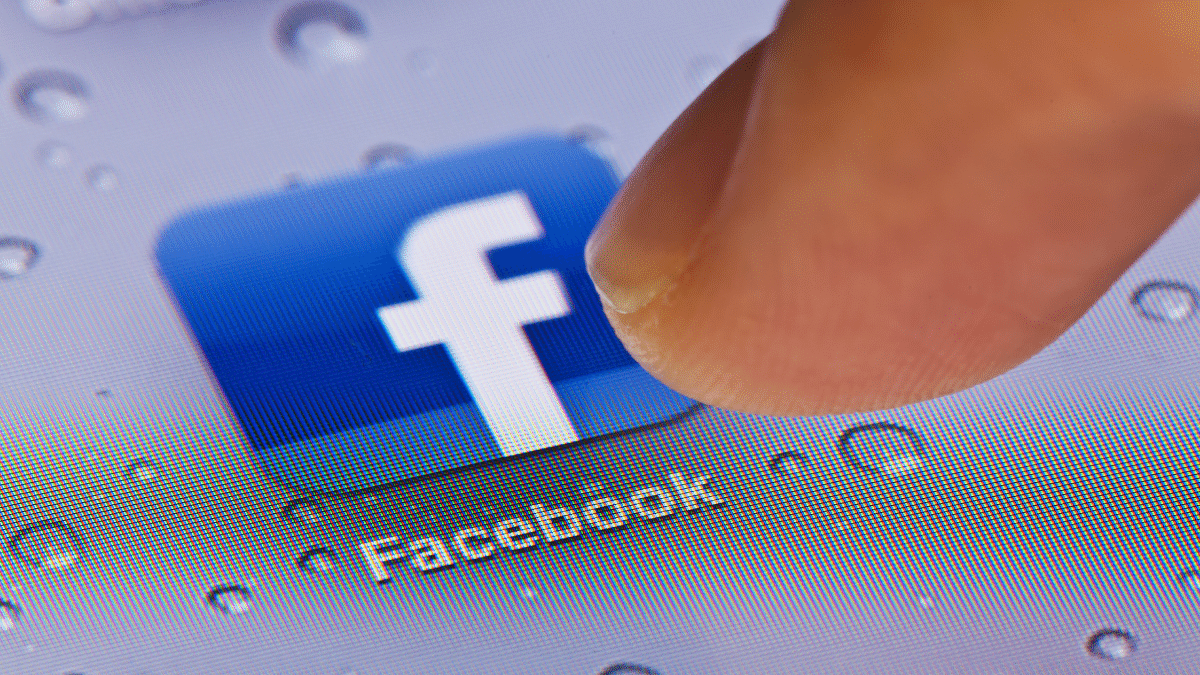One Simple Facebook Change That Can Help Attribution

When it comes to setting citation standards, Facebook is an interesting case study.
Where Twitter’s citation standards were generally developed by users and adapted by Twitter itself, Facebook has always taken a top-down approach and imposed its desired citation standards on its users.
That citation standard primarily took the form of the “Share” button. In short, the Share button is a simple way for users to take content that they see elsewhere on Facebook and publish it to their timeline.
To that end, it’s remarkably simple and effective. It allows users to put publicly available content they like in their feed while making sure the original content is correctly cited and that users can easily find the source.
However, the Share button has some serious limitations. First, it cannot be used on anything that isn’t publicly shared. This makes sense due to privacy restrictions.
Second, it doesn’t work at all in private groups, even when the content is available publicly. This makes private groups a place that citation goes to die. Once something is shared in there, it usually is copied, pasted and reshared without attribution at all.
Facebook could easily fix this. In fact, it already has on most limited Facebook posts.
A Simple Fix to a Complex Problem
Currently, you can only share publicly available posts (or content) on Facebook. This means that, if a friend posts content that is for friends only or only for specific friends, it can’t be shared by those that see it using the share button.
However, if a friend posts a public work, whether a webpage or a public Facebook post, the share button still appears on the post. However, rather than sharing the friends-only post, only the public content is shared.
This is a simple and elegant solution to the problem. It encourages people to use the share function but keeps the private part of the post private.

But that’s not how it works with private groups.
Groups are different than personal Facebook posts. When it comes to Facebook Groups, the company only offers two privacy settings: Public and Private
Private groups have their posts and membership hidden from everyone other than current members while public groups are, well, public. Anyone can see what is posted to the group and who the members are.
However, if a user publishes a public work, whether a webpage or a public Facebook post, to a private group, the share button disappears complete. There’s no way to share the public-facing content outside of that group.

The only way to do it is to click through to the content and share from there. However, with a public Facebook post, that’s not always immediately clear on how to do it (Note: You can always click the time stamp on the post to get taken to its direct URL).
As such, content posted into private groups often gets shared, but usually it’s copied/pasted and separated from its attribution. In short, private groups are where the share chain (and thus attribution) goes to die on Facebook.
Once something is shared to a private group, it’s likely not leaving it with its attribution intact.
Fixing the Problem
Fixing the problem is remarkably easy. It just needs to do for private groups what Facebook already does for friends only and otherwise non-public posts on timelines: Offer the Share button but only share the public content.
Though some group admins might protest this as harming the privacy of the group, no group information is being shared. To those that see the share, it would look as if they directly shared the post or link, bypassing the group completely.
Though it’s difficult to determine how much of a problem this is, groups are a central part of how people interact and engage with one another on Facebook. It’s also one of the biggest tools for discovery new content. Not having a way to share publicly available information posted to private groups is a detriment to creators and the original posters.
However, it’s a complex problem with an easy solution. If there hasn’t been a huge backlash to doing this with private timeline posts, then there is no reason there should be one in private groups.
What Facebook is doing now is simply encouraging sharing without citation. It’s not that content doesn’t get shared from private groups, it’s that it is routinely shared without citation.
Bottom Line
It’s rare that we have complex problems with simple solutions. However, this is one time Facebook provided the solution for us.
Though it’s unclear why Facebook Groups are treated differently than posts on a Facebook timeline, especially considering many private groups have thousands of members, there’s no reason to not make public content shareable from private groups.
Of course, Facebook doesn’t set its citation standards out of the goodness of its heart. It created the Share button and other machinations with the intent of keeping people on Facebook.
However, even here this seems like a win-win. Making content easier to share on Facebook encourages people to stay on Facebook. It just also happens to help creators and to maintain attribution.
But, until Facebook makes that change, private groups will be where attribution goes to die and where the stream of shares gets fractured into countless pieces.
Want to Reuse or Republish this Content?
If you want to feature this article in your site, classroom or elsewhere, just let us know! We usually grant permission within 24 hours.
